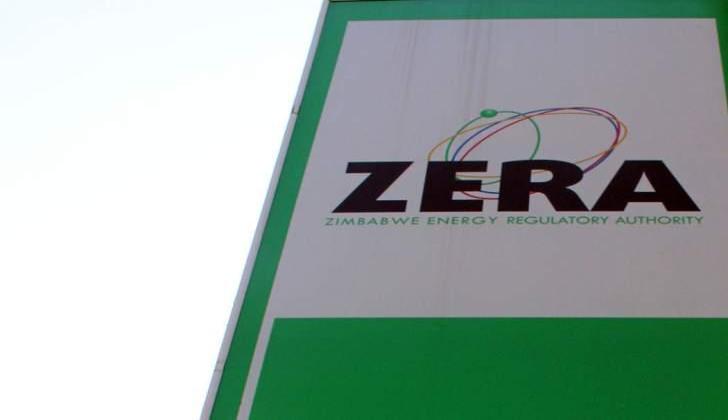News / Local
Fuel imports figures stunted, says Zera
13 Aug 2021 at 05:51hrs |
1 Views

RECURRENT foreign currency shortages, worsened by Covid-19 restrictions, are suppressing fuel imports with latest data from the Zimbabwe Energy Regulatory Authority (ZERA) showing stunted movements in import figures for the half year ended June 2021.
Diesel continued to take a plunge from the first quarter, ending the half year at 7,2% decline to US$342 million from US$368 million during the same period last year although petrol increased 8,1% to US$224 million from US$207 million during the same period last year.
While most of the fuel importers are relying on the foreign currency auction system, Finance minister Mthuli Ncube's recent mid-term budget revealed that the central bank was saddled with a one and half month forex allocation backlog.
As at the end of last month, 6% of the total forex auction system allocation had gone to fuel, gas and electricity according to the monetary policy statement presented by the Reserve Bank of Zimbabwe (RBZ) governor John Mangudya, last week.
Zera board chairperson David Madzikanda told the Zimbabwe Independent this week that restricted commercial activity has a direct bearing on consumption of diesel which is mainly used for commercial purposes.
"The importation figures for liquid fuel indicate a 7,2% decline in diesel and 8,1% increase in petrol. Lockdowns are suppressing fuel consumption and at the same time lack of forex by consumers restricts access and use of fuel. The traditional challenge of accessing foreign currency is still cited as one factor which suppressed the supply of fuel. Furthermore, the continued lockdown measures imposed by the government to curb the spread of the Covid-19 pandemic continue to suppress demand for main fuels," he said.
However, he said fuel import levels are expected to increase in tandem with the economic growth expectation of more than 7%.
Zera, however, recently announced fuel price increases, setting the pump price of diesel at ZWL$114,29 (US$1,33) per litre and petrol at ZWL$117,07 (US$1,37) per litre.
Madzikanda said the change in prices was influenced by the increase in the international crude oil prices because oil producers had curtailed production with a view to push up prices.
"The increases have a direct knockon effect on countries such as Zimbabwe which are import dependent and are pricetakers. Once there is stability in the international crude oil prices or if they come down, the local prices will also respond accordingly. However, various measures have been put in place to curb the prices down." he said.
Currently, Zera is undertaking a review of some of the elements that make up the final fuel price to ensure that only efficient costs are part of the pricing methodology and protecting consumers.
"At the same time, it is necessary to ensure that fuel operators remain viable and are able to continue to provide the service," Madzikanda said.
As of August 6, 58 fuel importers have been licensed compared to 130 in 2019.
Diesel continued to take a plunge from the first quarter, ending the half year at 7,2% decline to US$342 million from US$368 million during the same period last year although petrol increased 8,1% to US$224 million from US$207 million during the same period last year.
While most of the fuel importers are relying on the foreign currency auction system, Finance minister Mthuli Ncube's recent mid-term budget revealed that the central bank was saddled with a one and half month forex allocation backlog.
As at the end of last month, 6% of the total forex auction system allocation had gone to fuel, gas and electricity according to the monetary policy statement presented by the Reserve Bank of Zimbabwe (RBZ) governor John Mangudya, last week.
Zera board chairperson David Madzikanda told the Zimbabwe Independent this week that restricted commercial activity has a direct bearing on consumption of diesel which is mainly used for commercial purposes.
"The importation figures for liquid fuel indicate a 7,2% decline in diesel and 8,1% increase in petrol. Lockdowns are suppressing fuel consumption and at the same time lack of forex by consumers restricts access and use of fuel. The traditional challenge of accessing foreign currency is still cited as one factor which suppressed the supply of fuel. Furthermore, the continued lockdown measures imposed by the government to curb the spread of the Covid-19 pandemic continue to suppress demand for main fuels," he said.
However, he said fuel import levels are expected to increase in tandem with the economic growth expectation of more than 7%.
Zera, however, recently announced fuel price increases, setting the pump price of diesel at ZWL$114,29 (US$1,33) per litre and petrol at ZWL$117,07 (US$1,37) per litre.
Madzikanda said the change in prices was influenced by the increase in the international crude oil prices because oil producers had curtailed production with a view to push up prices.
"The increases have a direct knockon effect on countries such as Zimbabwe which are import dependent and are pricetakers. Once there is stability in the international crude oil prices or if they come down, the local prices will also respond accordingly. However, various measures have been put in place to curb the prices down." he said.
Currently, Zera is undertaking a review of some of the elements that make up the final fuel price to ensure that only efficient costs are part of the pricing methodology and protecting consumers.
"At the same time, it is necessary to ensure that fuel operators remain viable and are able to continue to provide the service," Madzikanda said.
As of August 6, 58 fuel importers have been licensed compared to 130 in 2019.
Source - the independent
Join the discussion
Loading comments…





























